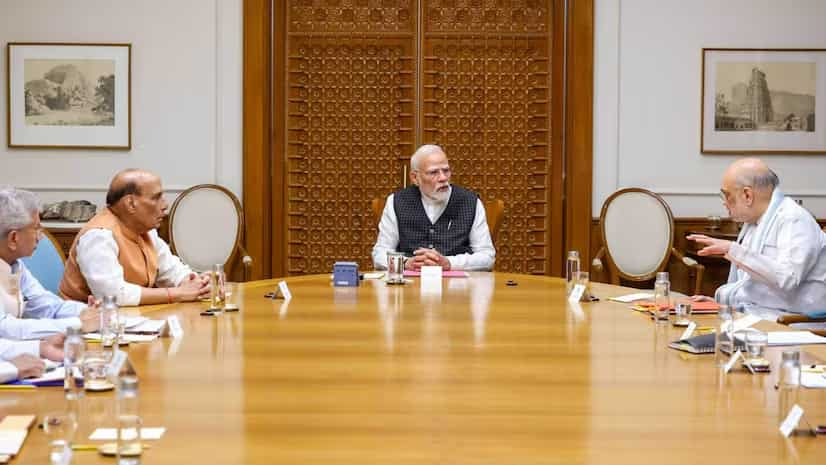Pahalgam Terror Attack: Prime Minister Narendra Modi is set to chair two high-level cabinet meetings on Wednesday — one with the Cabinet Committee on Security (CCS) and the other with the Cabinet Committee on Political Affairs (CCPA) — following the brutal terror attack in Jammu and Kashmir’s Pahalgam that left 26 people dead, most of them tourists.
According to IANS report, the CCS meeting is likely to be followed by a Union Cabinet meeting, the first since the April 22 attack. A meeting of the Cabinet Committee on Economic Affairs (CCEA) may also be held later in the day.
There was no Union Cabinet meeting last week, with only the CCS meeting convened on April 23, where the government strongly condemned the targeted killing of civilians in the Baisaran valley.
‘Complete operational freedom to armed forces’: PM Modi
On Tuesday, PM Modi told top military officials that the armed forces have “complete operational freedom” to decide how and when to respond to the Pahalgam terror attack.
In a high-level meeting with Defence Minister Rajnath Singh, NSA Ajit Doval, and the service chiefs, PM Modi reiterated India’s resolve to give a “crushing response” to terrorism and expressed full faith in the capabilities of the armed forces.
Wednesday’s CCS meeting, is expected to concretise India’s next steps, including possible military options to avenge the attack. The committee had earlier directed Indian forces to remain on the highest alert.
CCPA meet today: Panel last convened after Pulwama attack
The CCPA meeting, also scheduled for today, is equally significant. It was last convened after the 2019 Pulwama terror attack to assess the security environment. That meeting led to the withdrawal of Pakistan’s Most Favoured Nation (MFN) status and was followed by the Balakot airstrikes.
The CCPA plays a key role in reviewing political and economic matters and is typically called during major national or international developments.
Meanwhile, Union Home Secretary Govind Mohan chaired a separate meeting on Tuesday with top paramilitary officials to assess the internal security situation. Discussions focused on strengthening border security, boosting counter-terror operations, and streamlining intelligence coordination in light of the evolving threat landscape.
In the April 23 CCS meeting, India had already announced a series of retaliatory measures against Pakistan — suspending the Indus Waters Treaty, shutting down the Attari border, cancelling visas of Pakistani nationals, blocking several social media accounts, and further downgrading diplomatic ties by cutting back embassy staff.
The April 22 attack in Pahalgam’s Baisaran valley shocked the nation. Terrorists opened fire on tourists, killing 26 people, including a Nepali national and a local resident. The incident has triggered a cascade of swift and firm decisions from the Centre.
(With inputs from IANS)
Anurag Dhole is a seasoned journalist and content writer with a passion for delivering timely, accurate, and engaging stories. With over 8 years of experience in digital media, she covers a wide range of topics—from breaking news and politics to business insights and cultural trends. Jane's writing style blends clarity with depth, aiming to inform and inspire readers in a fast-paced media landscape. When she’s not chasing stories, she’s likely reading investigative features or exploring local cafés for her next writing spot.






